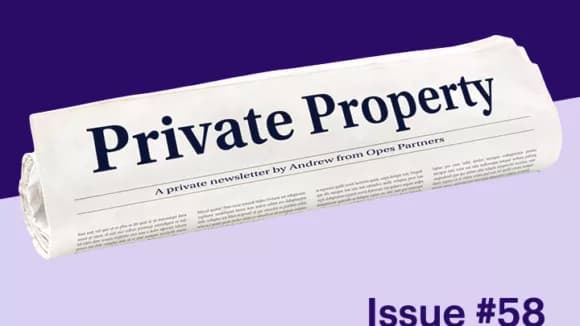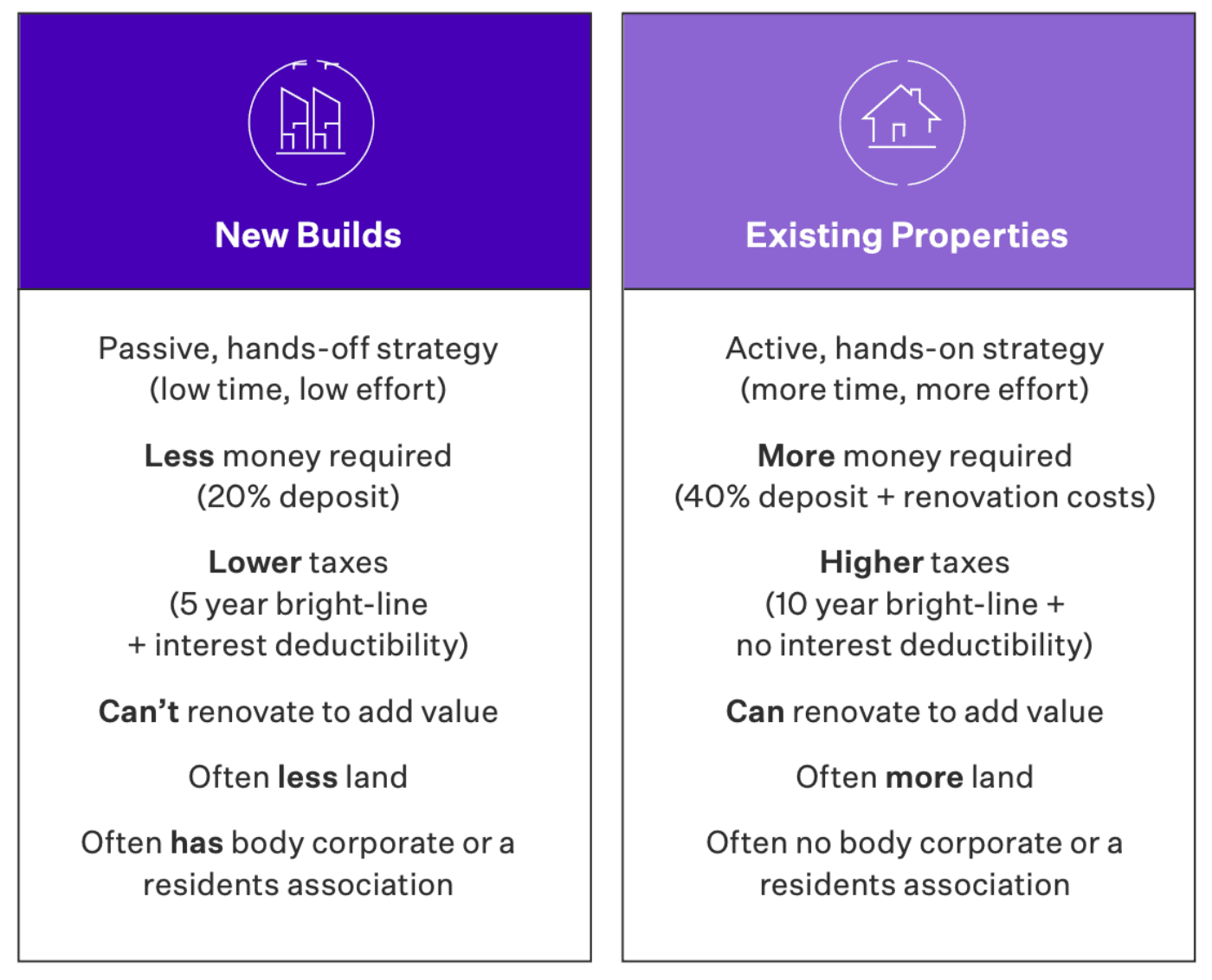
Property Investment
Property Investment
4 min read

Author: Andrew Nicol
Managing Director, 20+ Years' Experience Investing In Property, Author & Host
Reviewed by: Laine Moger
Journalist and Property Educator, holds a Bachelor of Communication (Honours) from Massey University.
Private Property – our weekly newsletter that gives you insights into what's happening in the NZ property market. Written by managing director Andrew Nicol. Sign up to receive this in your inbox every Thursday.
Investing in a New Build property is not for everyone.
Don’t get me wrong – New Builds come with benefits. (Of course, I’d say that – my company recommends New Builds as investments).
But they also come with extra problems that nobody tells you about.
In fact, there are 9 main problems investors face when investing in New Builds.
These are all covered in my new ebook – Everything that could go wrong with your investment property (and how to fix it).
Here are 2 of the top 9:
New Builds can take a while to get built. It usually takes 6-18 months, give or take.
And during construction, things can change, making it harder for you to get money from the bank to pay for your property.
Some of these come from the bank:
Other times, your circumstances could change. And this could also stop you from getting the money. Things like:
But here’s the thing, when you sign a contract to buy a property, you legally need to pay for (settle) the property once it’s built.
So, you often can't substantially change your financial situation for the worse while your property is being built.
This doesn’t mean you have to put your family or career plans aside, but you have less wiggle room if your lending is tight.
How do I fix this?
Sometimes these changes aren’t within your control, e.g. if you’re made redundant.
But, sometimes, investors take out massive new loans or voluntarily take a lower-paying job during construction.
If the bank is willing to lend you loads of money, doing these things might not be so bad.
But if your ability to borrow is limited, taking on new debt and expenses is often not a good idea.
That is why you should also consider the following:
Whenever you hear me talk about property, it’s always based on the idea that you hold them as a long-term investment.
However, there can be genuine circumstances where you sign up for a New Build and then need to sell it early.
For instance, if you:
Whatever the reason, if you sell your property early, there is a real risk you will sell it for less money than you bought it, especially after real estate agent fees.
How do I fix this?
The most surefire stop this from happening is to go investing with a long-term view.
Some investors get to the point where they have to pay for the property (settlement) and change their minds about buying the New Build.
This is not a good idea.
But, for the times when things are outside your control, you might:
These are just 2 excerpts from my new downloadable guide: Everything that could go wrong with your investment property (and how to fix it).
You may have read this newsletter and thought: "How are there 7 other things that could still go wrong?
“And why are you telling me this when you find New Build properties for investors?"
The returns from property investment can be enormous and life-changing.
So, this guide isn’t designed to scare you off. It’s written to:
And don’t get me wrong, New Builds have benefits too.
Here’s a table from another of my recent ebooks – The Ultimate Guide To Buying a New Build Investment Property.

But to make an informed investment, you must know the benefits and the risks.
Because here’s the good news –
When you know what can go wrong with property investment. You’ll know what to do when things do go wrong.
Managing Director, 20+ Years' Experience Investing In Property, Author & Host
Andrew Nicol, Managing Director at Opes Partners, is a seasoned financial adviser and property investment expert with 20+ years of experience. With 40 investment properties, he hosts the Property Academy Podcast, co-authored 'Wealth Plan' with Ed Mcknight, and has helped 1,894 Kiwis achieve financial security through property investment.
This article is for your general information. It’s not financial advice. See here for details about our Financial Advice Provider Disclosure. So Opes isn’t telling you what to do with your own money.
We’ve made every effort to make sure the information is accurate. But we occasionally get the odd fact wrong. Make sure you do your own research or talk to a financial adviser before making any investment decisions.
You might like to use us or another financial adviser